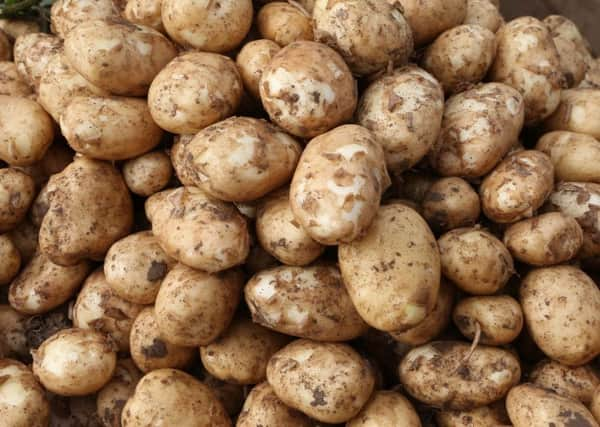The humble potato is one of the most versatile ingredients of all


On my knees, tender fingers packed with dark soil, I gathered three baskets full and could take no more. My first “career” lasted about two hours and yielded me about 10p! Thankfully it didn’t put me off eating or cooking potatoes and I still relish the new potato season.
My grandparent’s grew Sharpe’s Express potatoes. The spade sank into the dry ground to reveal golden, buttery pear shaped orbs. These were steamed, tossed with a little butter and served with tomatoes from the greenhouse, lettuce, boiled eggs and salad cream.
Advertisement
Advertisement
Potatoes were first cultivated by the Incas in Peru over 6,000 years ago.
They are recorded as being grown in London from 1597 and their popularity spread during the industrial revolution to fuel workers with this cheap and energy rich food. There are roughly 80 varieties grown in the UK today and they can be divided in two categories - “earlies” with a soft skin that are harvested from May and “maincrop” with their firm skin, that are available from late summer to autumn.
The three types of potatoes in the UK that have protected geographic status (pgi) are Comber Earlies, Pembrokeshire Earlies from Ayrshire in Scotland and Jersey Royals from the channel island. They benefit from sandy soil and sea salty air and make for soft skinned, tender textured potatoes that require no more adornment than a dash of good butter or simple vinaigrette.
The most well known crop of “earlies” are Home Guard, British Queen and Maris Peer. The Queens and Home Guard both gained momentum during the two world wars, hence the names, and were part of the staple diet during these trying times.
Advertisement
Advertisement
MFK Fisher, the American food writer, says in her book “How to Eat a Wolf”: “Potatoes are one of the last things to disappear in times of war, which is probably why they should not be forgotten in times of peace”.
One of the most versatile of ingredients, potato dishes can be anything from a simple baked King Edward with butter to an elaborate pressed Desiree terrine, studded with herbs. They run the gamut of seasons too, from refreshing summer potato salads to deep rich comforting gnocchi with pancetta and fontina, to spicy, warming middle eastern spiced dishes to the ultimate heart warming Irish Colcannon with cabbage and scallions.
Sales of this magnificent tuber are down in recent times, with consumers favouring rice and pasta, with the perception they are quicker to prepare and more nutritious. In reality a potato is naturally fat free, rich in Vitamin C, Vitamin B6 and fibre.
A muck-caked potato, straight from the ground gladdens my heart. It might be a little bit more high maintenance in the preparation department but each one tells a story of the local terroir and essence of the land it came from. Something that would be much harder to say about spaghetti...
The Comber Early Potato Festival takes place today in the square in the town with talks, tastings, chef demonstrations and all things related to this local treasure.